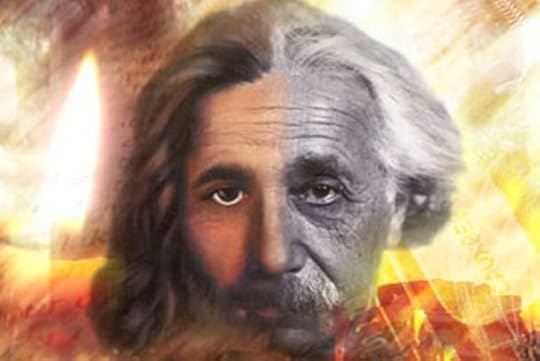Science and Religion - Can't We All Just Get Along?
I heard a news story on NPR the other day about a recent study showing that our neighbors to the north in Canada ranked first among all countries surveyed in terms of scientific literacy. We in the U.S., despite investing much more capital in scientific research, lag far behind Canadians when it comes to our citizens' ability to understand news stories that detail scientific findings.
Wow - that's both humbling and disturbing. Given the importance of science and technology to the success of our nation and economy, this doesn't bode well for us. Maybe, by studying the example set by our friends Up North, we can learn how to do better.
Jon Miller, the director of the International Center for the Advancement of Scientific Literacy at the University of Michigan and a member of the panel that produced the report about Canada's level of "science geek proficiency," offers a simple explanation. "Culturally, Canada has not had a component of their population that are basically anti-science," says Miller, whereas "one-third of our population (in the U.S.) that are fundamentalists reject many things scientific, starting with evolution."
That's a sad commentary on America's willingness and ability to embrace science. It isn't helped by the overt politicization of science in our polarized two-party holy war for the hearts and minds of voters: "Your scientists say X, but our scientists say Y." Real scientific consensus is obscured behind editorial rants and opinion polls.
So how do we fix this? And how do we writers of speculative fiction, specifically, help turn the tide?
First of all, I think we need to be very clear about not regarding our religious brethren as enemies. Science and religion don't need to be adversarial; it's not a zero-sum game where one camp has to lose for the other to gain. In fact, a recent study by Rice University shows that U.S. scientists are not "religion-bashing atheists" but are remarkably similar in their religious practices to the general public. We can reflect and reinforce this in our works of fiction. That religious villain who is fundamentalist, fanatical, and anti-science is every bit as tired a caricature as the "mad scientist" in Hollywood B movies. The brilliant scientist hero who dismisses religion as a "fear-induced fantasy to comfort the weak-minded" is no less cliched.
Real people, and real issues, are complicated. Neither side of this conflict is wholly right or wrong, and both sides are guilty of stoking the fires of animosity between them. Maybe, as writers, we can tell stories that use the wonder of science to strengthen, and not denigrate, people's faith. Who can view the spectacular images from Hubble and not celebrate the truth that there are forces shaping our universe (or multiverse) that we don't yet fully grasp? In the unseen dimensions of the quantum world, or the voids between galaxies, there is plenty of room for the divine.
Scientists are trained to maintain a healthy dose of skepticism... but being skeptical of someone else's belief system can impede the very progress our society so desperately needs if we're going to solve the problems that threaten our viability as a species. Faith can move mountains, as the saying goes. Maybe, if we unify faith in the scientific method with faith in a higher power instead of placing them in opposition, we can start to move the mountain-sized obstacles we face.
Wow - that's both humbling and disturbing. Given the importance of science and technology to the success of our nation and economy, this doesn't bode well for us. Maybe, by studying the example set by our friends Up North, we can learn how to do better.
Jon Miller, the director of the International Center for the Advancement of Scientific Literacy at the University of Michigan and a member of the panel that produced the report about Canada's level of "science geek proficiency," offers a simple explanation. "Culturally, Canada has not had a component of their population that are basically anti-science," says Miller, whereas "one-third of our population (in the U.S.) that are fundamentalists reject many things scientific, starting with evolution."
That's a sad commentary on America's willingness and ability to embrace science. It isn't helped by the overt politicization of science in our polarized two-party holy war for the hearts and minds of voters: "Your scientists say X, but our scientists say Y." Real scientific consensus is obscured behind editorial rants and opinion polls.
So how do we fix this? And how do we writers of speculative fiction, specifically, help turn the tide?
First of all, I think we need to be very clear about not regarding our religious brethren as enemies. Science and religion don't need to be adversarial; it's not a zero-sum game where one camp has to lose for the other to gain. In fact, a recent study by Rice University shows that U.S. scientists are not "religion-bashing atheists" but are remarkably similar in their religious practices to the general public. We can reflect and reinforce this in our works of fiction. That religious villain who is fundamentalist, fanatical, and anti-science is every bit as tired a caricature as the "mad scientist" in Hollywood B movies. The brilliant scientist hero who dismisses religion as a "fear-induced fantasy to comfort the weak-minded" is no less cliched.
Real people, and real issues, are complicated. Neither side of this conflict is wholly right or wrong, and both sides are guilty of stoking the fires of animosity between them. Maybe, as writers, we can tell stories that use the wonder of science to strengthen, and not denigrate, people's faith. Who can view the spectacular images from Hubble and not celebrate the truth that there are forces shaping our universe (or multiverse) that we don't yet fully grasp? In the unseen dimensions of the quantum world, or the voids between galaxies, there is plenty of room for the divine.
Scientists are trained to maintain a healthy dose of skepticism... but being skeptical of someone else's belief system can impede the very progress our society so desperately needs if we're going to solve the problems that threaten our viability as a species. Faith can move mountains, as the saying goes. Maybe, if we unify faith in the scientific method with faith in a higher power instead of placing them in opposition, we can start to move the mountain-sized obstacles we face.

#SFWApro
date newest »
newest »
 newest »
newest »
Work in Progress
Random musings from a writer struggling to become an author.
- Brian Burt's profile
- 51 followers




You are off to a good start. For almost any topic that is the major problem, not the actual problem itself.
Crossing that divide is not easy.
"Maybe, if we unify faith in the scientific method with faith in a higher power instead of placing them in opposition"
I think you missed the mark there because there are plenty of scientists, engineers, etc. who do believe in "faith" and plenty of religious people who believe in science.
Due to advances in technology of all kinds, the protective insulation factor between an event and yourself that was based on distance no longer exists. Go back far enough in time and there were plenty of things that happened in the world that had no immediate effect, and maybe never had any effect for any other group of people, except for those directly involved. Those times are gone.
Unfortunately in this world some one else's problem is now your your problem, and your problems are their problems. Until that abstract problem can be faced, there is no long term solution for the actual problems we see everyday.
Keeping in mind that people tend to get lost in the human aspect of a story leaving the actual lessons behind, what kind of plot would at least steer people in the direction that would have them considering how well the hero or heroine is doing as well as keeping the problems you want to draw attention to in mind as well.